Abstract
OBJECTIVE: The authors examine the possible adverse consequences of incarceration on drug offenders, their families, and their communities. OBSERVATIONS: State and federal policies on drug felons may affect eight elements of personal and community well-being: children and families, access to health benefits, access to housing benefits, access to assistance for higher education, immigration status, employment, eligibility to vote, and drug use or recidivism. CONCLUSIONS: Minorities have a high chance of felony conviction and an increasing lack of access to resources, suggesting that patterns of drug conviction and health disparities may be mutually reinforcing. Large numbers of people sent to prison for drug offenses are now completing their terms and reentering communities. Their reentry will disproportionately affect minority communities. Without resources (education, job opportunities, insurance, health care, housing, and the right to vote) drug abusers face a higher risk of recidivism and increase the burden on their communities.
Full text
PDF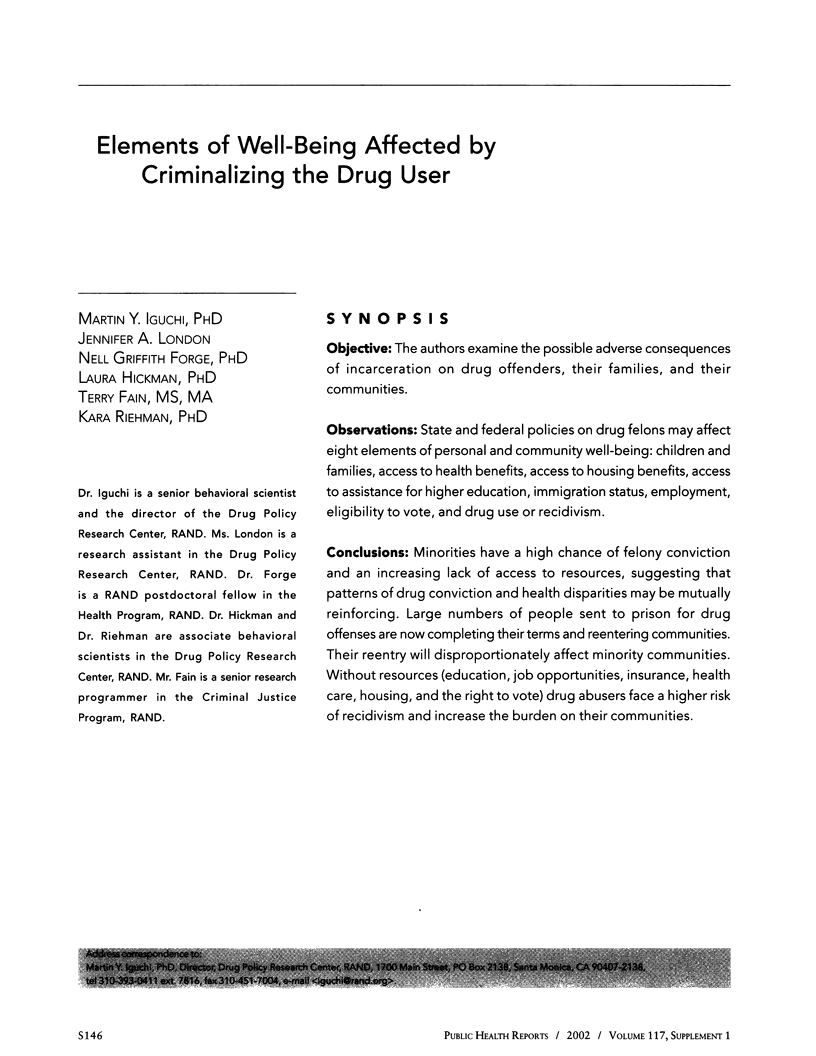
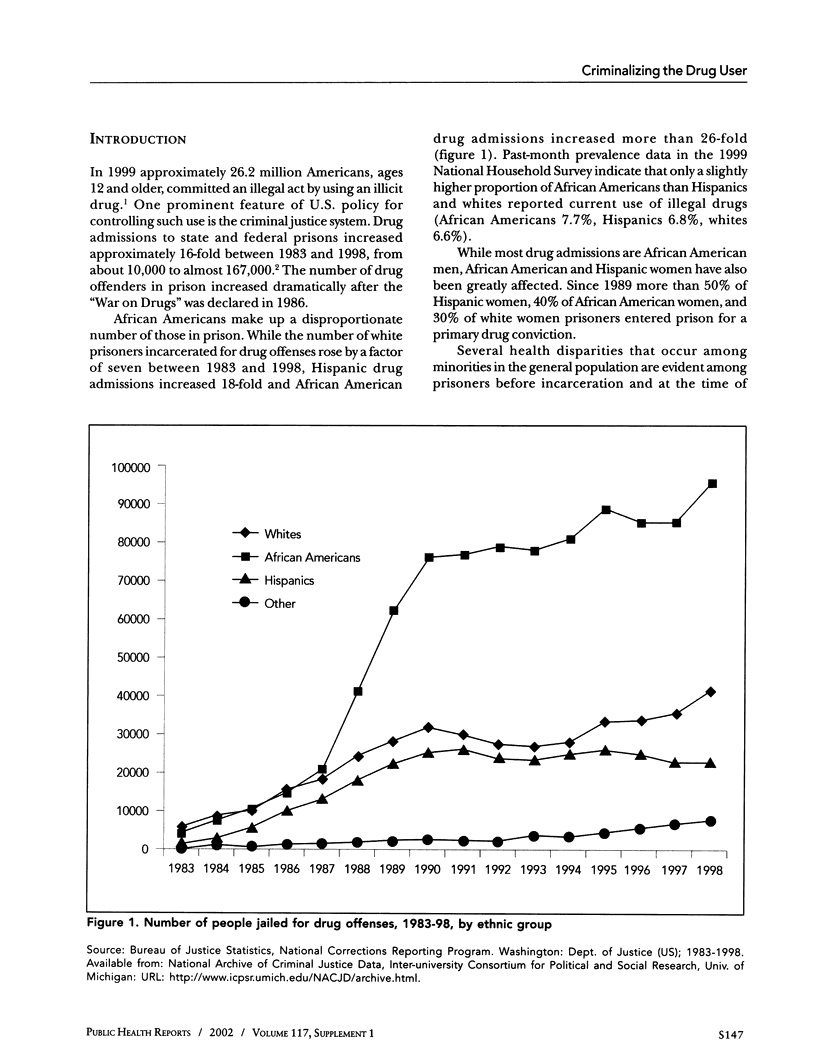
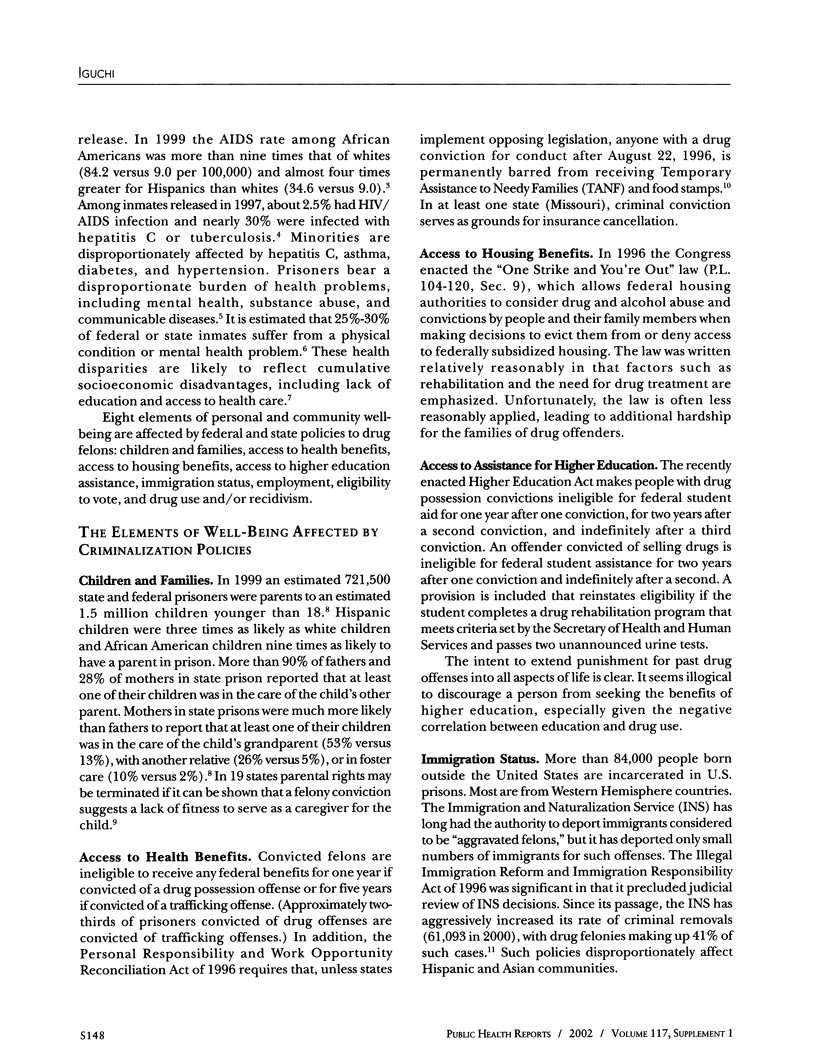
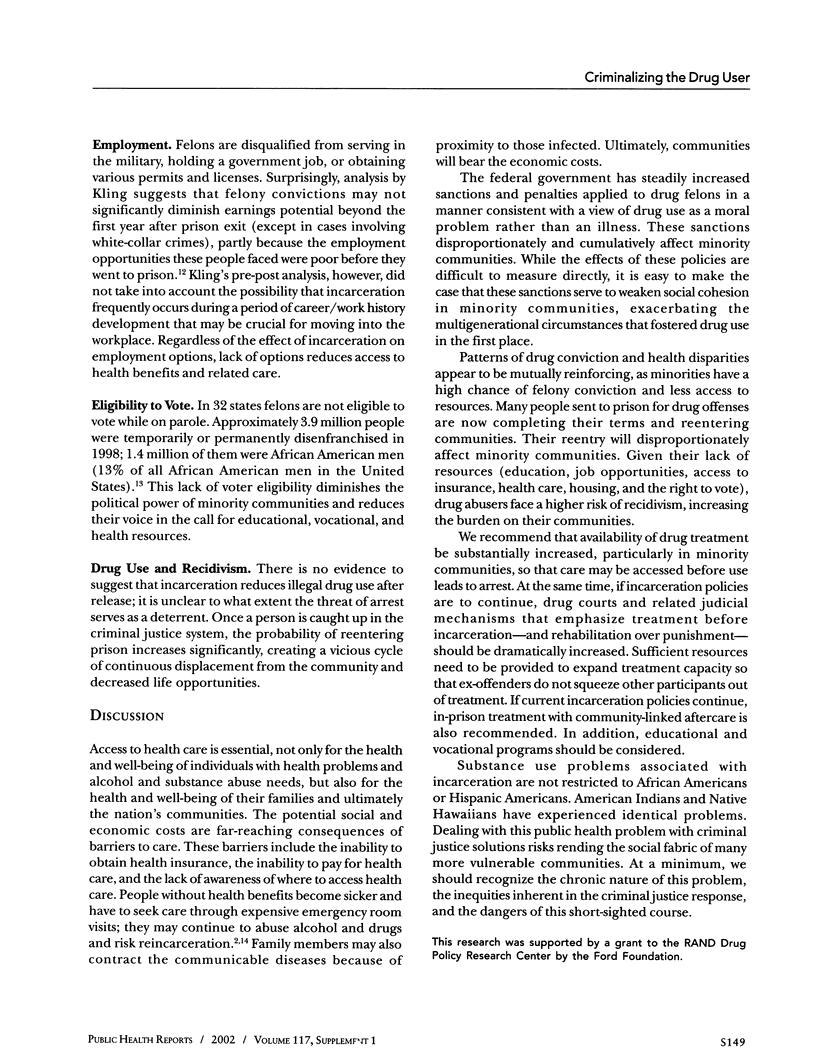
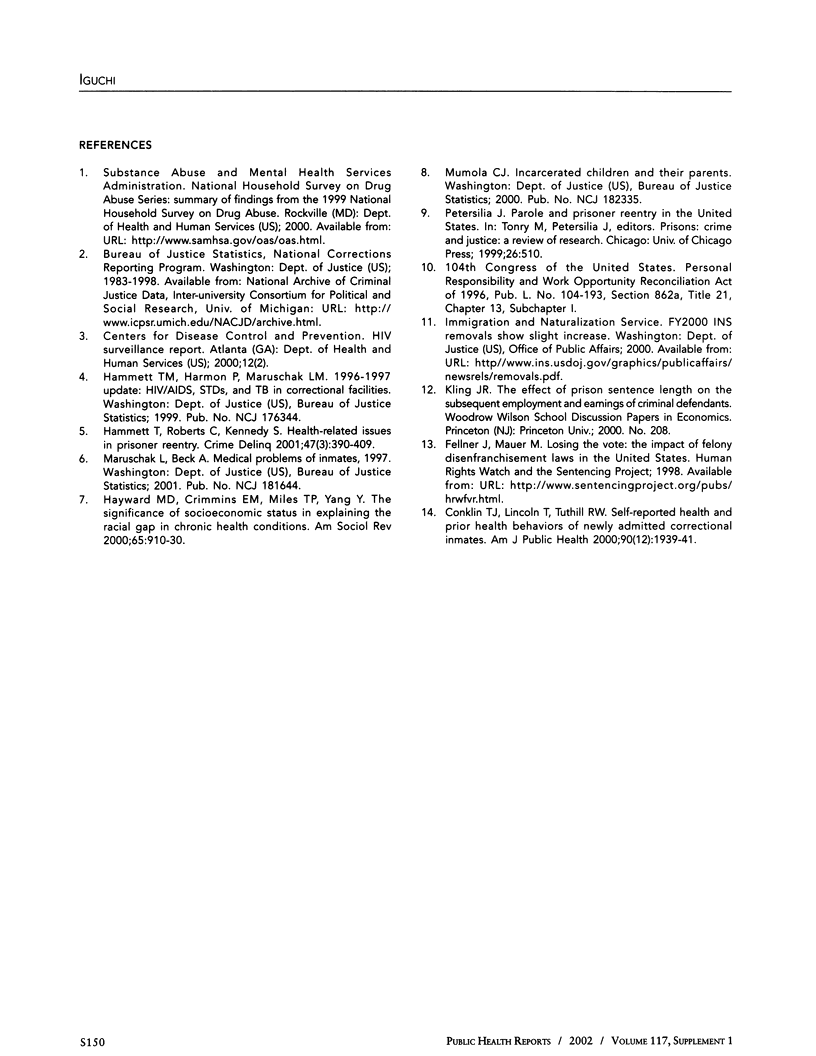
Selected References
These references are in PubMed. This may not be the complete list of references from this article.
- Conklin T. J., Lincoln T., Tuthill R. W. Self-reported health and prior health behaviors of newly admitted correctional inmates. Am J Public Health. 2000 Dec;90(12):1939–1941. doi: 10.2105/ajph.90.12.1939. [DOI] [PMC free article] [PubMed] [Google Scholar]


